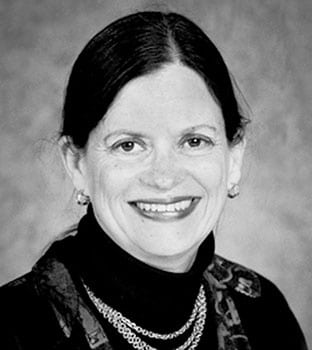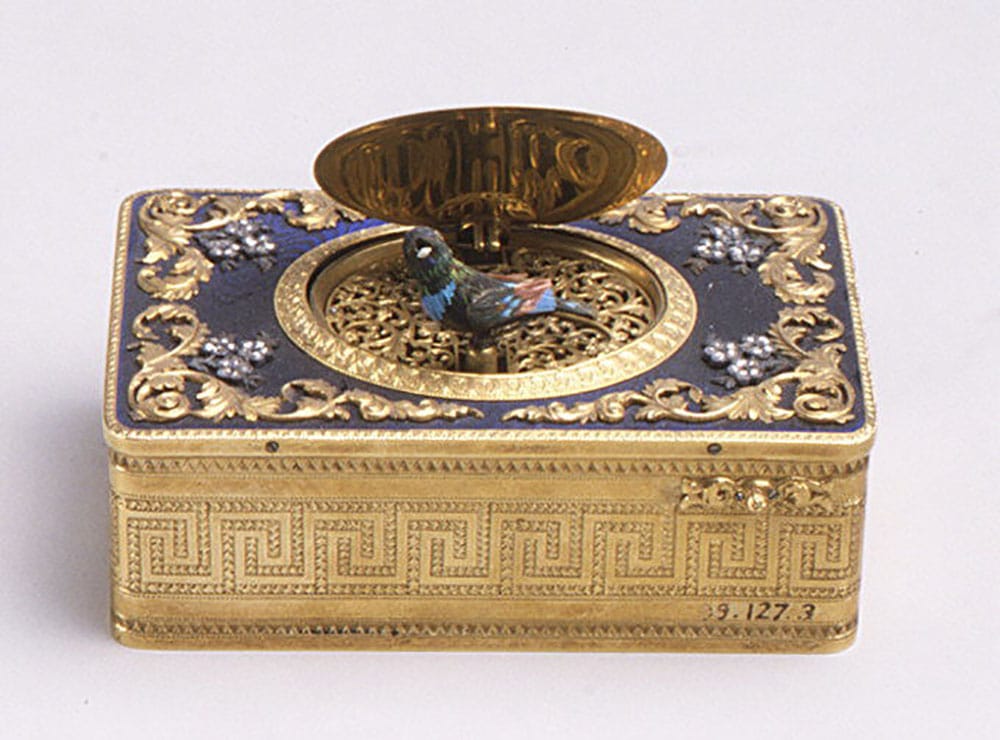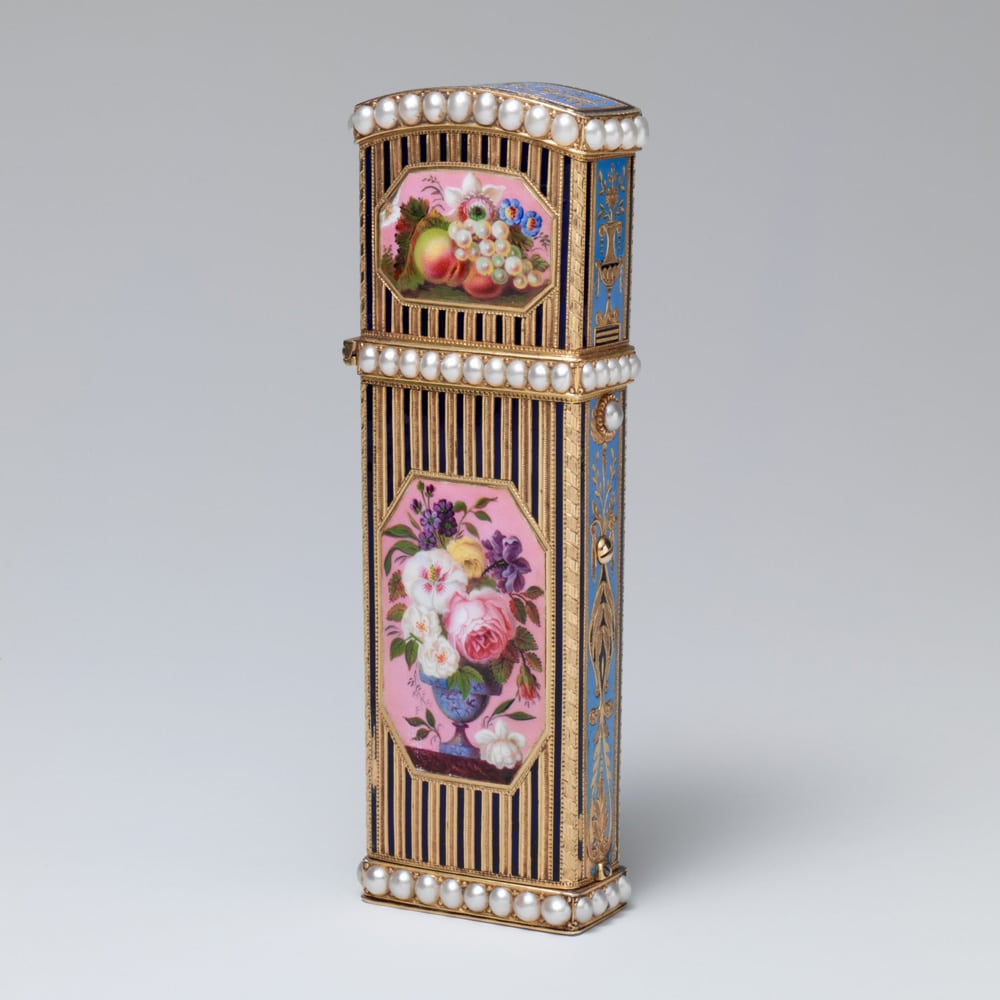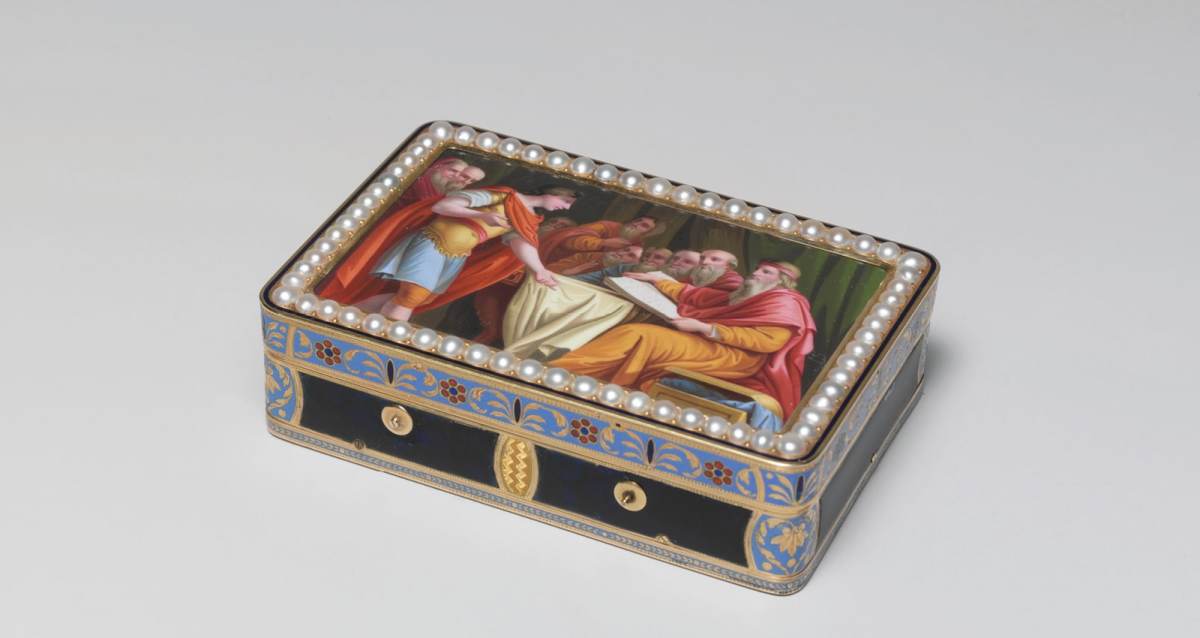Since musicology’s inception as an academic discipline in the 19th century, few scholars have influenced the field as profoundly as Susan McClary. Perhaps best known for her central role in “New Musicology”—the late-1980s push to incorporate social, political, and cultural analyses into music studies—she is certainly no stranger to criticism and controversy.
Although there were several other music historians and theorists associated with this movement, McClary’s 1991 book Feminine Endings: Music, Gender, and Sexuality is often considered the trailblazing text that sparked a “disciplinary explosion,” as she has described it. She has since gone on to critically reconsider Western music from a variety of perspectives, from her controversial claim on the sexual tension in Beethoven’s Ninth, to representations of gender in works by Kaija Saariaho and Beyoncé.
Today, “New Musicology” is simply musicology. Once a discipline limited by the rigid boundaries of empiricism and historical positivism, mainstream musicology has finally embraced—although not without years of controversy—the cultural perspectives she and others introduced three decades ago. In addition to authoring some of the most widely-read and cited work in the field, she and her colleagues have inspired a new generation of musicologists intent on situating music within its political and social contexts. Her work stands on its own as an essential contribution to the academic study of music, but it also, of course, has profound implications for musical performance and interpretation.
McClary has shown us that music dances, breathes, speaks, and moves in our own subjective realities; that it is and always has been inextricably bound to its historical context and the human experience.

VAN: You’ve said that your father used to play recordings of canonical classical works at home when you were very young, and now you’ve become his “Frankenstein.” What is your relationship with the Western canon after years of exposing critical issues with it?
Susan McClary: To my father, classical music was a path toward increasing upward mobility. There wasn’t a time where I didn’t know all the Brahms Symphonies, all of Beethoven, all the Mozart operas—that was simply what happened in our house, and it was his way of ensuring his children had different lifestyles than he did. I avoided popular music growing up because I had a strange feeling all along that if I listened to it, everything he had fought for would go down the drain. But Elvis appeared when I was 11 years old; the Beatles suddenly broke out when I was a senior in high school. This should have been my music, but it wasn’t—I didn’t know any of it. I just continued marching forward through classical music, into my career. I was tremendously grateful, and still am, that I know the canon; it’s helped me enormously, but also hindered me from making contact with students who don’t have the same background. It was only after my father died that I realized how ridiculous this all had been.
I knew I couldn’t stand in front of my 21st-century survey course and pretend the history of 20th-century music took place on the concert stage—that was not the music that mattered in the 20th century! I had to sit down and cram jazz and rock in as though I were doing a seminar on the 13th-century motet—it was alien to me, but I felt, ethically, this was the only way it could be done. Once I started teaching jazz and rock, I found being involved with contemporary vernacular music allowed me to have insight into classical music that I never would have had otherwise.
Do you still have an active interest in the canon? Are these works you still spend time listening to?
[Laughs.] I love the canon! Next year may be my last year teaching, and I want to spend it teaching the entire history survey. Anything I’m teaching at the present moment is my favorite music, whether it’s Beethoven Quartets, Mahler, or how to analyze pre-tonal repertories. All of these things still matter enormously to me; it’s a matter of inclusion and not exclusion.
I’ve also been teaching seminars in operas since “Einstein on the Beach.” We’ve spent quite a bit of time with Du Yun’s recent opera “Angel’s Bone” and Missy Mazzoli’s “Breaking the Waves.” These are brand new works. They should be controversial; they should be works that all intelligent musicians are debating and thinking about, and I’m really committed to that. These works aren’t yet canonic, but I hope they will be. I feel like musicologists still gravitate toward old things. I really believe in encouraging people to know the music that’s happening right now, whether that’s classical or popular music.
Your PhD dissertation at Harvard includes ideas you then reconsidered in a gender-theoretical framework almost 40 years later (Desire and Pleasure in Seventeenth-Century Music). Did you know back then, in the ‘70s, that incorporating critical gender theory into music would be your eventual path?
No, not at all. But I knew when I was writing my dissertation that no one else was asking these kinds of questions. My fundamental question for 17th-century music has been simply: How does this music work? How do you begin to reconstruct the expectations and assumptions behind an entire repertory that is so distant from us? It doesn’t work the same way Bach works—that’s not going to get us anywhere. My project seemed crazy to a lot of people. And I was married at the time, so everyone thought I was going to disappear, because that’s what everyone thought happened to married women back then.
When I was at the University of Minnesota, I started working with people involved with critical theory. I started wondering whether gender mattered in music, and I didn’t sooner ask that question then realize: well, yeah! It’s all over the place. I started being invited to feminist conferences, and I was received very well by literature and film scholars, but no one thought this was radical stuff. So when I published Feminine Endings, I thought, Well, I’m just bringing the kinds of questions everyone in the social sciences and humanities were already asking. I just wanted to be able to make sense of music at various moments in history, and to read it in the ways that literary scholars read plays or novels—to talk about how they are making cultural sense. I hadn’t realized how isolated musicology was. Gender aside, there was just so little interpretive work. Feminism was only one of the perspectives I introduced, but it’s certainly the one that sparked the greatest reaction.

Yeah, it seems that musicology was one of the last frontiers for post-structuralism and critical theory. Why did music, specifically, take so long to push its disciplinary boundaries?
Since the 19th century, beginning with Eduard Hanslick, there has been an attitude that music was only about music—that it had nothing to do with the outside world. That position came about in part because all of these utopian movements in Europe, that the early Romantic composers had been very much involved with, crashed and burned in 1848. Many musicians and artists fled to the United States—one of the reasons we had so many symphony orchestras springing up. Those who remained found it was in their interest not to emphasize the radical potential of the arts, but to pretend that they were autonomous. So many of the ways we analyze and talk about music became grounded on that assumption.
I’m a really good analyst, by the way; I know how to play all those games. I’m not saying Heinrich Schenker and people like that didn’t have extraordinary insight into music, they most certainly did. But using only those methods is the equivalent of limiting yourself to analyzing only the sentences in a novel, without moving to the next level and figuring out plot, representation, and relationships to cultural tensions. New Musicology—not a term I made up, by the way—was initially concerned with how to bring music and history together; how to create a bridge to help the notes themselves to be understood in cultural terms. This has always been my principal project, more so than feminism or anything else: how to treat music as historical texts, to sort out its priorities, beliefs, and structures of feeling at various moments in time. And this flew in the face of the ideology of autonomy. It has taken a long time to get people to realize that you really can have analysis, you can delve deeper into the musical structures and think about them in historical and interpretive terms.
Are there limits to mapping social and political significance onto music? Can this end up excluding alternative perspectives and interpretations?
I don’t think any of my interpretations are the interpretations. If more people were involved in this kind of work and were able to have debates, we’d have more perspectives. Just like we can go into Hamlet and talk about how it deals with the proper succession of kings; how it has to do with gender; how it has to do with metaphysics. All of these things we can talk about, and thousands of people have written about them. The same is true for music: for example, what kind of temporality is being presented? What kinds of tension and release? These are cultural issues. That line of questioning doesn’t reduce the music to a single reading; it opens it up for us to listen more carefully and think about what we’re hearing. I may have something to say about “Tristan und Isolde” this week and I might have something different to say about it next week.
The latest from VAN, delivered straight to your inbox
Musical autonomy has also reared its ugly head in recent months. What is the history of this idea, and what is its potential for abuse?
The original reason we celebrated autonomy was when that music broke away from patronage, artists were free to do what they wanted, for better or worse. That version of autonomy, I think, we can all celebrate. We certainly don’t want people in power breathing down the necks of artists telling them what to do. The more problematic dimension of the use of that word is when we act as though music is simply music, because the music that gets to have that umbrella, of course, is Western classical music—music between Bach and, say, Brahms. And people point to that music as evidence of the superiority of European and European-descended people, which marginalizes the rest of the world and, also, minority groups in the U.S.
The Chicago Symphony Orchestra and the Philadelphia Orchestra, among others, recently released concert programs for their 2018-19 seasons that completely exclude works by women. Why does this continue to happen?
For a long time, women were just not in the positions to get the training they needed. You had to be in a position to learn instruments, musical processes, and internalize how music works. That used to happen through apprenticeships, from which women were almost always excluded. It took a long time for women composers to get parity in universities and conservatories, and that has only been very recently. The very few women who emerged in early music did so because they were nuns, like Hildegard von Bingen, or they were related to male musicians from whom they could get training, like Barbara Strozzi and Clara Schumann. This is very different from becoming a literary artist; if you can read and write, you can make up novels if you like. But you can’t do that with music. You have to be in a place where you can learn music, and women were excluded from these places for a very, very long time.
Then there’s the fact that opera houses and symphony orchestras are huge but fragile financial enterprises. They are absolutely in the business of selling tickets. In the early 19th century, they played music by people who were then still alive. Around the time of Beethoven’s death, the doors to the canon slammed shut. It wasn’t just women not being performed, but also subsequent composers not getting performed. The number of contemporary artists who get performed—men and women—is just really, really small. That makes the challenge for women today much harder: they’re scrambling for these very few slots that men are also scrambling for, ones they’re not likely to get.
I went to see Mahler’s 9th last week. Mahler is going to sell tickets with older people who want to hear 19th-century symphonies. So they’ll try to sneak one contemporary work on the program. In that case, the Mahler was second, so some people didn’t even bother showing up for the first piece. Sometimes that place is occupied by Saariaho, for example. And people think: “Oh, I don’t need to hear that; I don’t even know who that is. I came to hear Mahler!”
So it’s not just a gender problem; it’s partly a gender problem, but it goes much deeper. Performing institutions have to cater to a restricted listenership, and they have to calculate risk. They go with what they know will sell. Most women, as a result, have simply not bothered with symphonies, because they know they’re not going to get performed. Women have been more successful in chamber music, or in smaller, experimental operas that are exciting right now, and other sorts of performance art-related venues. The same thing happened with people like Pauline Oliveros and Laurie Anderson. They were creating their own work, and they certainly weren’t going to go with the symphony orchestra! There is a reason why fewer and fewer symphony orchestras exist in the U.S. It’s a 19-century instrument, and it plays 19th-century music. There may be, in a few years, only four or five in the U.S. that survive. I hear the most exciting works happening in smaller venues where experimentation can thrive.

To use a term recently coined, we are living in a “musical multiverse.” How should we be thinking about music aesthetically in the 21st century, when musical “movements” seem to be less unified by aesthetic characteristics and more by social and economic communities, such as the Internet?
Leonard Meyer wrote a book in the ‘60s called Music, the Arts, and Ideas. There’s an essay in that book in which he argues there will no longer be a musical mainstream; for so long we had classified musics based on tonality and serialism, and he already saw, in the ‘60s, all of those things breaking up. He was right. I don’t see that as a problem; it only becomes a problem when we try to draw generalizations. I don’t decry the absence of a mainstream. Liberation from particular discourses into all of the things happening in music today is great.
“Angel’s Bone,” for example, incorporates electronic music, 16th-century sacred polyphony; it has stuff that sounds like Du Yun’s own performance-art screaming; it has material influenced New Zealand ritual, and I don’t know Chinese music well enough to know when she’s actually drawing on that, but I can tell in some of her music that she does. This is really exciting! Next to that, we have Thomas Adès’ “Exterminating Angel,” and Kaija Saariaho working with Ezra Pound poems in “Only the Sound Remains.” We just have extraordinary people making music. And all of this circulates on YouTube. I can hear something I like, and then I can hear whatever YouTube happens to recommend to me next. This is one of the reasons young people don’t see the need for symphony orchestras anymore—they can go on YouTube and see some of the greatest orchestral performances ever, and then they can listen to everything else that’s going on. What an exciting time to be alive. ¶
Subscribers keep VAN running!
VAN is proud to be an independent classical music magazine thanks to our subscribers. For just over 10 cents a day, you can enjoy unlimited access to over 875 articles in our archives—and get new ones delivered straight to your inbox each week.
Not ready to commit to a full year?
You can test-drive VAN for one month for the price of a coffee.


Comments are closed.